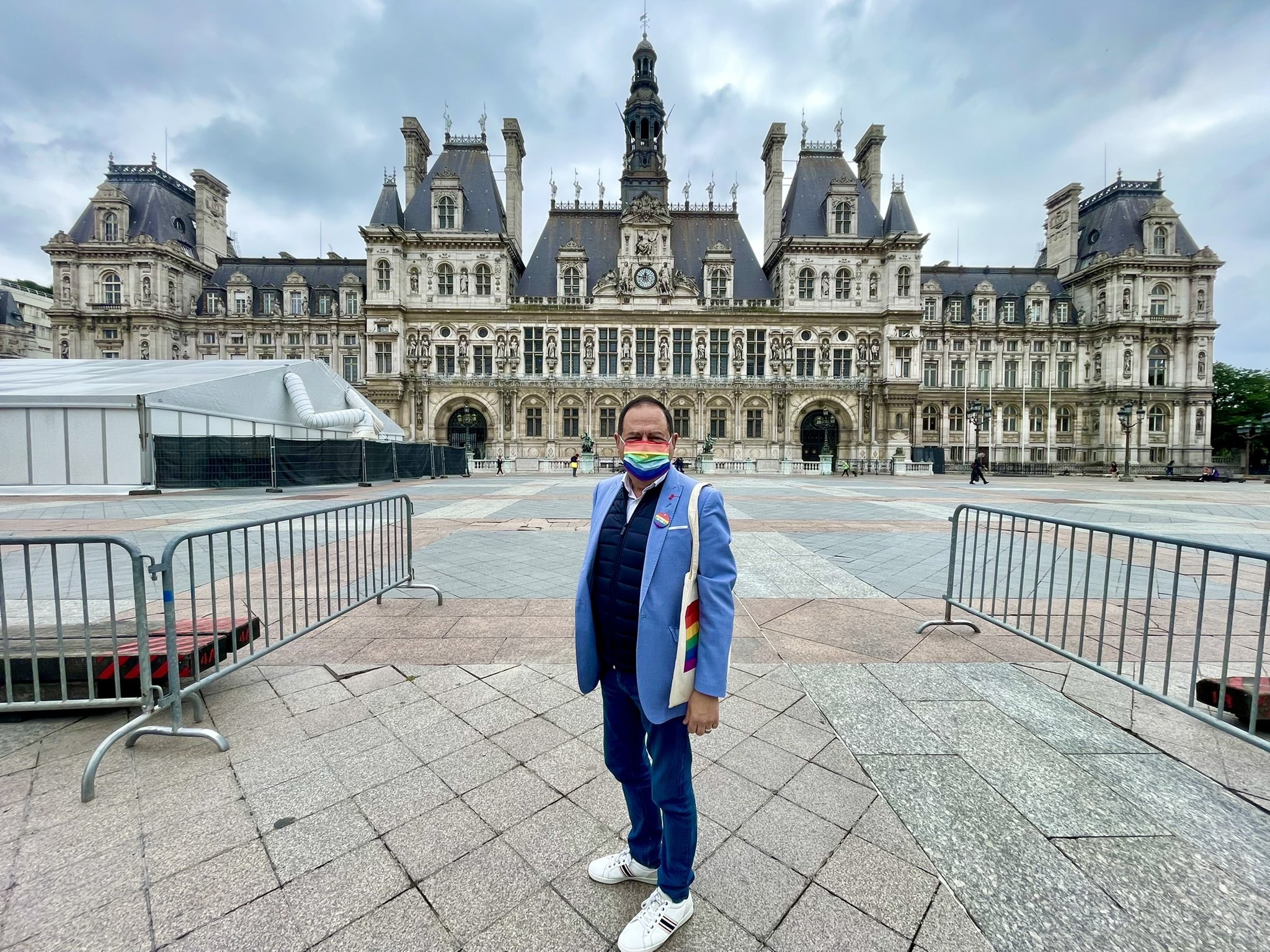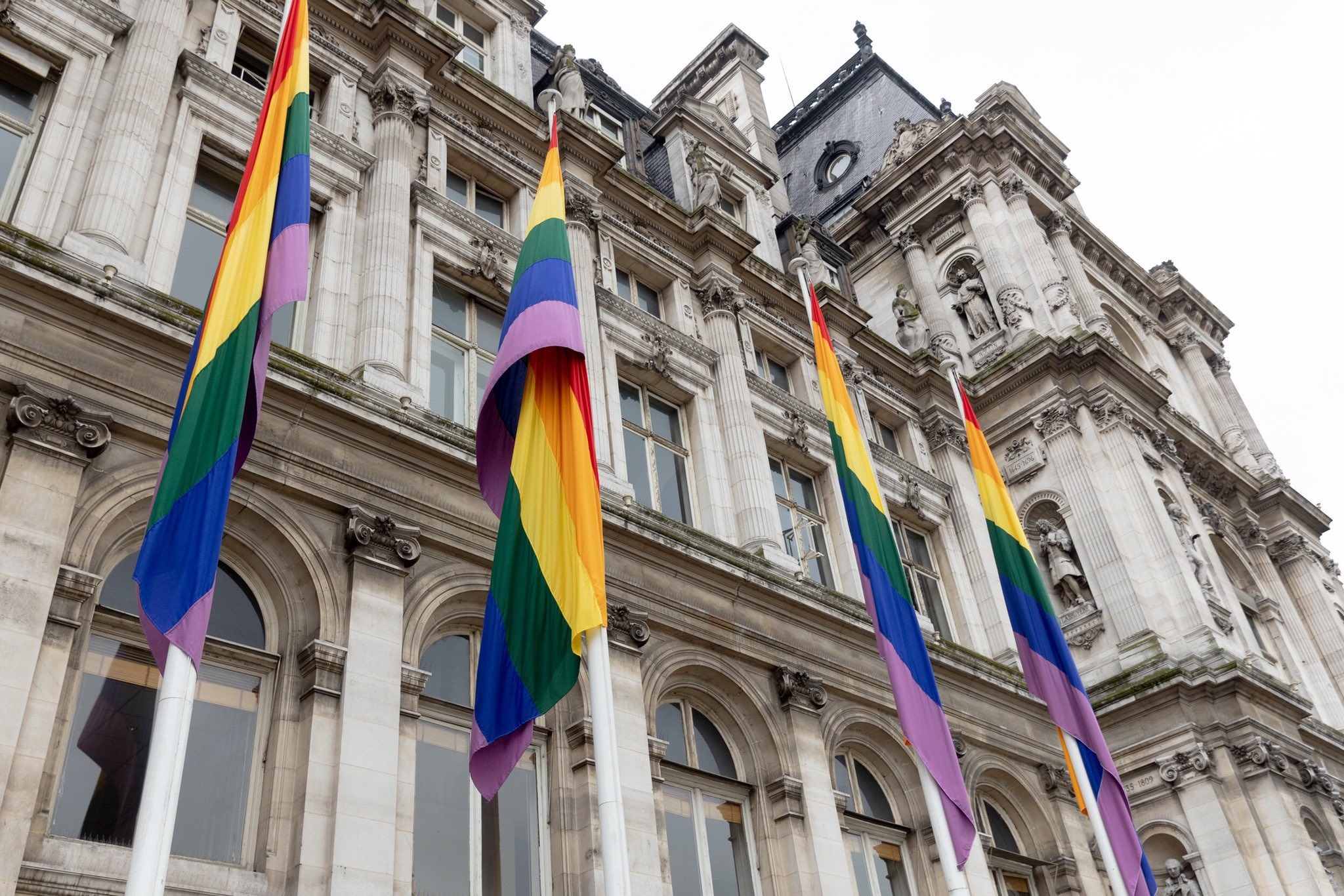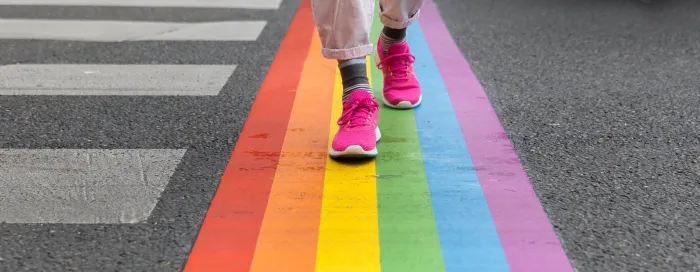This interview is part of our #LoveWhereILive campaign and of our series “#ProgressiveLocalStories”, aimed at raising awareness on the many positive initiatives implemented by progressive cities and regions in Europe. Cities and regions have become laboratories for innovative solutions and, with this series, we want to discover how progressive mayors, councillors and presidents of regions put in place policies to promote and protect LGBTIQ rights.
Mr. Romero-Michel, you are Deputy Mayor of Paris in charge of human rights, integration and the fight against discrimination. Paris is a leading example in promoting and protecting LGBTIQ rights. As a progressive leader, what are your thoughts on LGBTIQ rights in France and in Europe today?
From my own personal experience, I had the opportunity to experience the evolution of LGBTIQ rights in France and Paris, but the fight for equal rights is far from over.
Recently, the “bioethics law” was finally passed in the French Parliament. It extended the right to access medically assisted procreation (MAP) for all couples, including women, as well as for single women. However, the victory is not complete. Much remains to be done. Indeed, several key measures have been removed from the bill, including the opening of MAP to trans people and the explicit prohibition of genital mutilation of intersex children by law.
Another topical issue, in my view, concerns conversion therapies. Despite considerable public debate, the government has still not defined a criminal qualification to prohibit this torture.
This is why we must continue our efforts to achieve equality without losing sight of the fact that nothing is ever fully achieved. The setbacks in the EU and in the rest of the world are proof of this.
Governments openly announce that they are against a supposed “LGBT ideology” and roll back rights. I am thinking for example of Poland, where I went to meet activists, or Hungary.
The question for me is what kind of Europe do we want? I am in favour of a Europe that is strong on its values and I welcome the recent actions of the European Commission and by a majority of Member States.

What concrete actions have you put in place (or are you currently considering) to make Paris a city in which the rights of LGBTIQ people are fully respected and promoted?
First of all, our cities have a very important symbolic role. Paris, the inclusive capital of all prides, is not just a slogan, it is first and foremost a way of living that we make our own. We proudly display the Rainbow colours on 17 May or during Pride Month, which ends with a magnificent Pride March that the municipality supports.
Our city and our Mayor, Anne Hidalgo, take a clear public stand whenever necessary. Paris declared itself an “LGBTQI+ Freedom Zone” this June and we have given our support to LGBTQI+ people in Poland by voting a vow at the Paris City Council and by awarding our International LGBTQI+ Prize to a Polish association fighting for equality on a daily basis.
The public space is also mobilised. Numerous rainbow pedestrian crossings have been installed in several places in the city, in the Marais of course, a central district with a reputation for being LGBTQI+ friendly, but also in the working-class districts of the capital. Wherever possible, we name streets, squares or public facilities after LGBTQI+ personalities or events, such as the Stonewall Riot Square or the Chantal Akerman Alley.
We also fund and support concrete schemes that respond to real needs such as shared accommodation for LGBTQI+ refugees or for LGBTQI+ seniors. We will soon inaugurate an LGBTQI+ House for the excluded of the excluded (such as refugees, trans, queer or HIV-positive people) to create a resource and meeting place.
Finally, since my arrival, we have launched an “administrative big bang” so that our community is exemplary as an employer (53,000 agents, 260 professions) and as a provider of public services. We are training and raising the awareness of our administration and we have set up 6 working groups that bring together institutions, city departments, associations and the people concerned. It is a small challenge, but we are leaving the wishful thinking behind and getting down to business. We cannot shy away when we see needs that we must meet. I am thinking of the forms, of the problems faced by trans people, LGBTQI+ families or minors.

The European Commission has proposed its first ever LGBTIQ strategy and the European Parliament has declared the EU an LGBTIQ Freedom Zone. How can the European Union contribute to advancing equality for LGBTIQ people, including outside the EU, and why is this important for your city?
I believe in the Europe of values enshrined in the Treaties and the Charter of Fundamental Rights. The Copenhagen criteria also clearly set the tone for the accession of new Member States. It is only once they are in the Union that we realise how difficult it is to manoeuvre with governments that choose to stigmatise this or that person in order to consolidate their power.
As a Parisian, Franco-Spaniard and European, I attach great importance to the fact that the construction of Europe does not only resemble a large à la carte market where everything can be tolerated.
As an elected representative and an activist, I know how slow the fight for equality and the conviction of the public can be, and how there can be both advances and setbacks, but I note and welcome the courage shown by the European institutions, the European Parliament of course but also the Commission.
In Paris, with Anne Hidalgo, we clearly believe that cities have a role to play in the face of the major challenges of our time. We believe in the added value of city diplomacy and we participate in European and international city networks. I recently met Nina Gabryś who is promoting equality in Krakow in Poland and I regularly exchange with my European counterparts from whom I learn a lot. I don’t think we should exclude a Member State that violates fundamental rights. I know what the European flag means in Poland or Hungary and I don’t want the activists or the people concerned to be left without our support and without recourse to European law. It is a big fight but I believe that love and equality will win in the end.
***
Photo credits: Jean-Luc Romero-Michel / Twitter.
